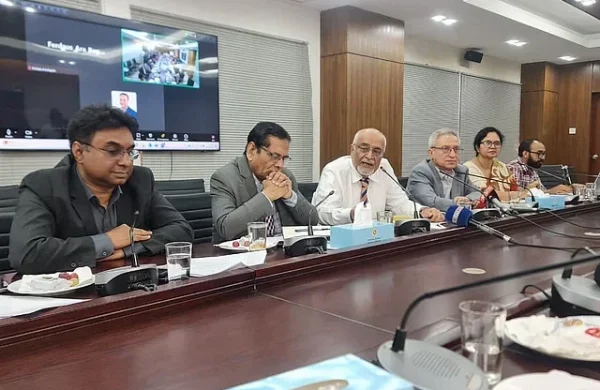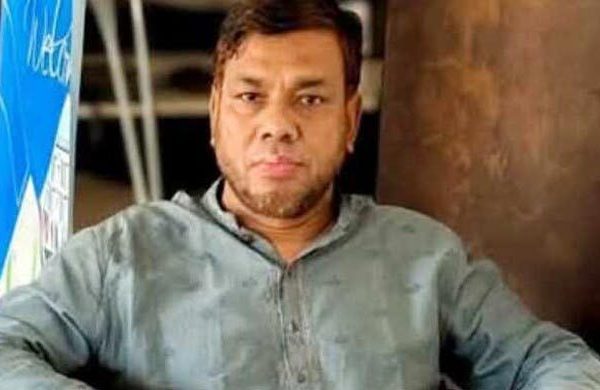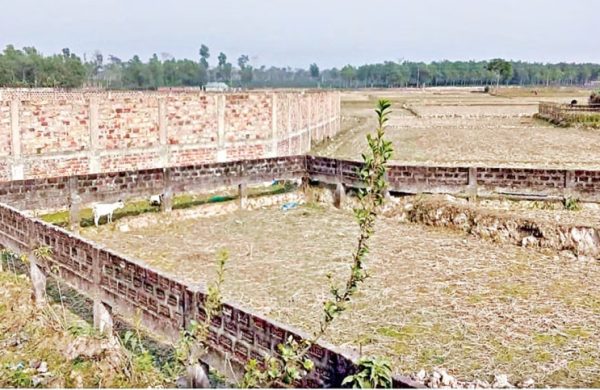ERF-White Paper committee: Corruption highest in four sectors
- Update Time : Friday, November 1, 2024

TDS Desk
Members of the white paper preparation committee exchange views with members of the Economic Reporters Forum at the Planning Commission in Agargaon on 31 October 2024
Members of the white paper preparation committee exchange views with members of the Economic Reporters Forum at the Planning Commission in Agargaon on 31 October 2024Prothom Alo
Debapriya Bhattacharya, head of the white paper preparation committee formed by the interim government, said despotic politics has given rise to corrupt economics.
He said these two were interconnected. But the question was whether autocracy or despotic politics gave rise to corrupt politics or was it the other way round. In other words, a corrupt economy created despotic politics.
Distinguished fellow of Centre for Policy Dialogue (CPD), Debapriya Bhattacharya, went on to say during the rule of the previous government, corruption was highest in four particular sectors — the banking sector, energy sector, government projects and the IT sector.
There was corruption in other sectors too, but nothing comparable to these four sectors, he remarked.
Debapriya Bhattacharya was speaking at a conference hall of the planning commission at a meeting held to exchange views with members of the Economic Reporters Forum (ERF) Thursday.
The other members of the committee taking part in the discussions were Jahangirnagar University’s economics department professor Sharmind Neelormi, energy export AK Enamul Huq, Business Initiative Leading Development (BILD)’s chief executive officer Ferdous Ara Begum, Dhaka University’s Development Studies professor Mohammad Abu Yusuf, economist Zahid Hossain, SANEM executive director Selim Raihan and, providing assistance to the committee, CPD senior researcher Toufiqul Islam.
ERF president Mohammad Refayet Ullah, general secretary Abul Kasem and other members took part in the discussions too.
Debapriya Bhattacharya said, “We are looking for a path for the future from old mistakes. The committee will submit its report within 90 days. But we are not working on any individual, but on a process.”
He said, the white paper committee is basically working on five areas. For instance, the areas that require reforms to repair economic wrongs will be identified.
We must keep in mind that when we impose any prohibitions on any person, group or party, this has economic implications. It means that along with a person’s, group’s or party’s political role, we are creating apprehensions of diminishing their economic role too, said Debapriya Bhattacharya, distinguished fellow, CPD.
He mentioned that four sectors had seen the highest corruption. The second area of work was to detail mid-term plans for such a situation because the 8th five-year plan had been suspended.
Thirdly, the white paper committee will draw up an outline on what is to be done to tackle the challenges of graduating from the LDC status. The next area is to state how to meet the shortfalls in meeting the SDG targets. Credible data and statistics is an important factor in this regard. For a long time there have been doubts about the accuracy of the data and statistics. Those concerned speak of their helplessness in this regard as well as intervention by the government.
Another function of the white paper committee is to determine what is to be done to bring stability to the economy in the short term. This covers the areas of high inflation, the taka value, financial deficit, debt repayment, foreign exchange reserves, state of food production, fixing the supply chain, and so on.
Speaking at the discussion, Professor M Tamim said, the projects taken up in the power and energy sector during the last government were riddled with over-evaluation, embezzlement and nepotism. Project work was awarded to those with political connections. And all decisions were taken from the prime minister’s office as the prime minister herself was the minister for energy and power.
Professor Mustafizur Rahman said, large projects were taken up with the taxpayers’ money. But no one ever saw any feasibility study for those projects. And yet the debit burden of those projects has been placed on the next generation. The illegal flow of funds had increased hugely at the time. Initially this money had been used in the domestic economy, but later most of this was siphoned out of the country.
Political legitimacy is essential for any government to survive. That crisis in political legitimacy began from the 2014 election. The development narrative gained currency from then, said Selim Raihan, SANEM executive director.
Professor AK Enamul Haque said it is not that the Implementation, Monitoring and Evaluation Division (IMED) had not submitted any good reports regarding the utilisation of project funds, but the Anti-Corruption Commission (ACC) took no measures. Many audit objection reports were submitted, but ACC did nothing. Towards the year 2018 many complaints would be lodged with ACC, but these fizzled out considerably in 2022 because the people had no trust in it.
Ferdous Ara Begum said private sector investors could not grow confidence in any of the policies. They had serious grievances against NBR and Bangladesh Bank.
Professor Mohammad Abu Yusuf said NBR took up many initiatives, but these were not implemented. Now NBR says that the finance ministry would impose targets on them and they could do nothing.
CPD senior researcher Toufiqul Islam said the government would create data and statistics in the same manner as it generated its various narratives.
Professor Sharmind Neelormi spoke about mismanagement in the health and education sectors.
Zahid Hossain said, on one hand there were systemic problems with data and statistics, and on the other there was the government’s intervention.
He said, a big question now is how to create accountability within the government. There are talks about reforms. But at the end of the day, it is accountability that will determine politics.
Selim Raihan said there are two types of institutions — one is political and other is economic. There are serious problems in both areas. Broadly speaking, the problem began with the incredibly flawed election of 2014. Political legitimacy is essential for any government to survive. That crisis in political legitimacy began from the 2014 election. The development narrative gained currency from then. And the endeavour to lend legitimacy to such development gave rise to a huge leap in crony capitalism.
Debapriya Bhattacharya added that he had dubbed crony capitalism in Bangla as “chamcha pujibad”.
Selim Raihan went on to say the project-dependent corruption also saw a huge leap in the last decade. A handful of business groups would benefit from state policies. The elite at the centre of ruling politics were with them, as well as a section of civil and military bureaucrats. They created a group and tried to give the development narrative a permanent shape.
He said there had been talk of reforming the institutions at various times, including the National Board of Revenue (NBR), the banking sector and so on. Now the basic question is, why were these reforms not carried out? It was because the alliance that had been formed had created an anti-reforms group. They foiled reforms at every step because these reforms went against their interests.
Debapriya Bhattacharya concluded by saying that a corrupt economy had been created in recent times within the country, leading to a polluted link between bureaucrats in uniform and out of uniform, politicians and a group of businesspersons. Together they had taken over the institutions in the country.
He further said a development narrative had been created at the time to cover up their corrupt economy. And autocratic politics was required to uphold that development narrative.
He further stated that unless politics is fixed, transparency, efficiency, accountability and balanced development would be obstructed. And the politics, economy, institutional reforms of the days to come depend on where we stand today. The scope, continuity and pace of reforms depend on how assured the government will be with the prevailing economy and how much relief the people will get.
Debapriya Bhattacharya said, “Various measures are underway at present. I see the government taking up discussions and initiatives on various positive reforms. We also see various political, institutional and administrative prohibitions. We must keep in mind that when we impose any prohibitions on any person, group or party, this has economic implications. It means that along with a person’s, group’s or party’s political role, we are creating apprehensions of diminishing their economic role too. I am not saying that this will happen, but we must keep these things in mind in order to ensure that the reform measures are sustainable.”
















